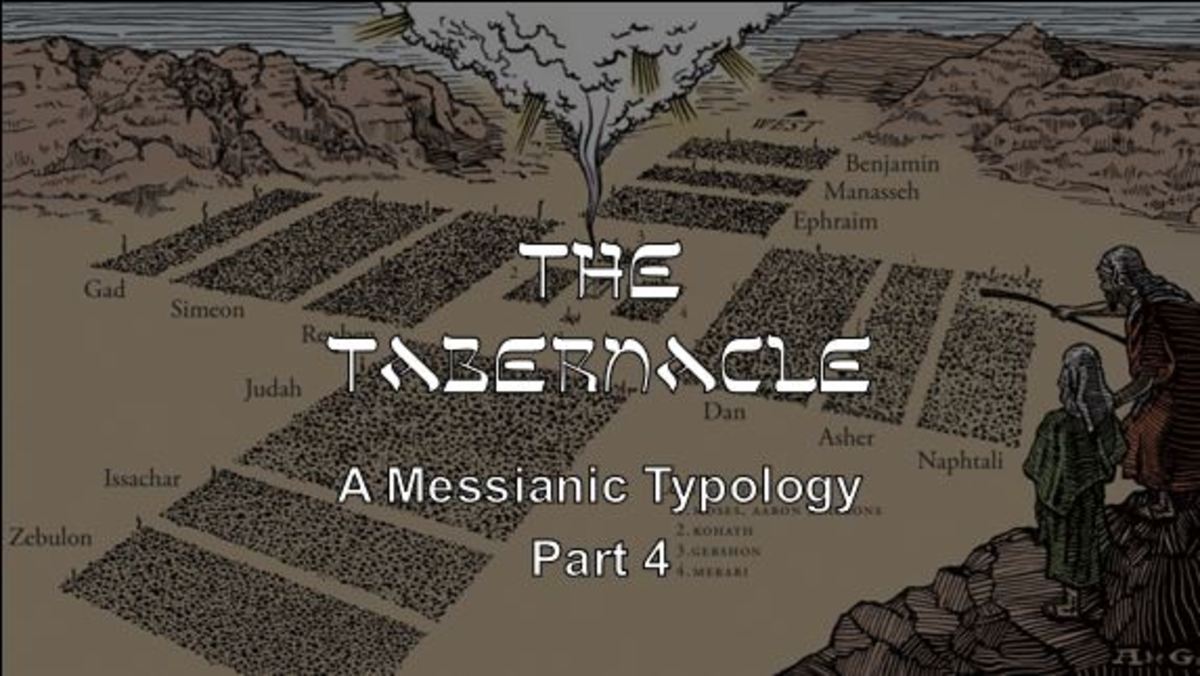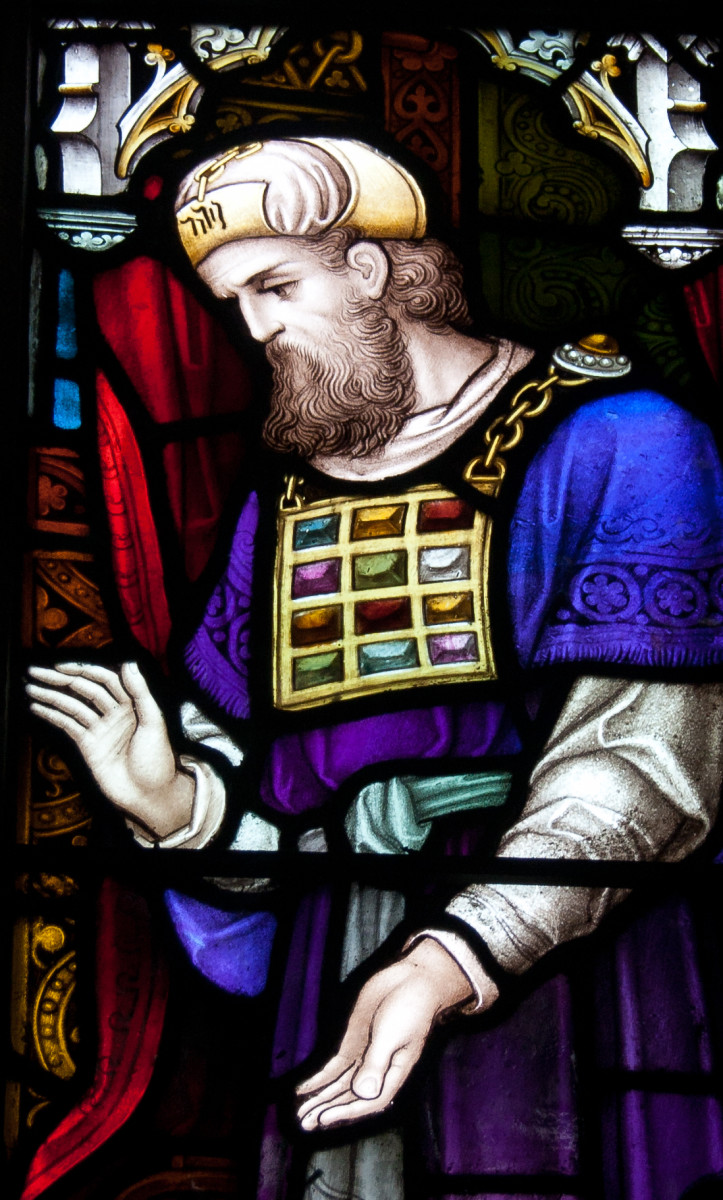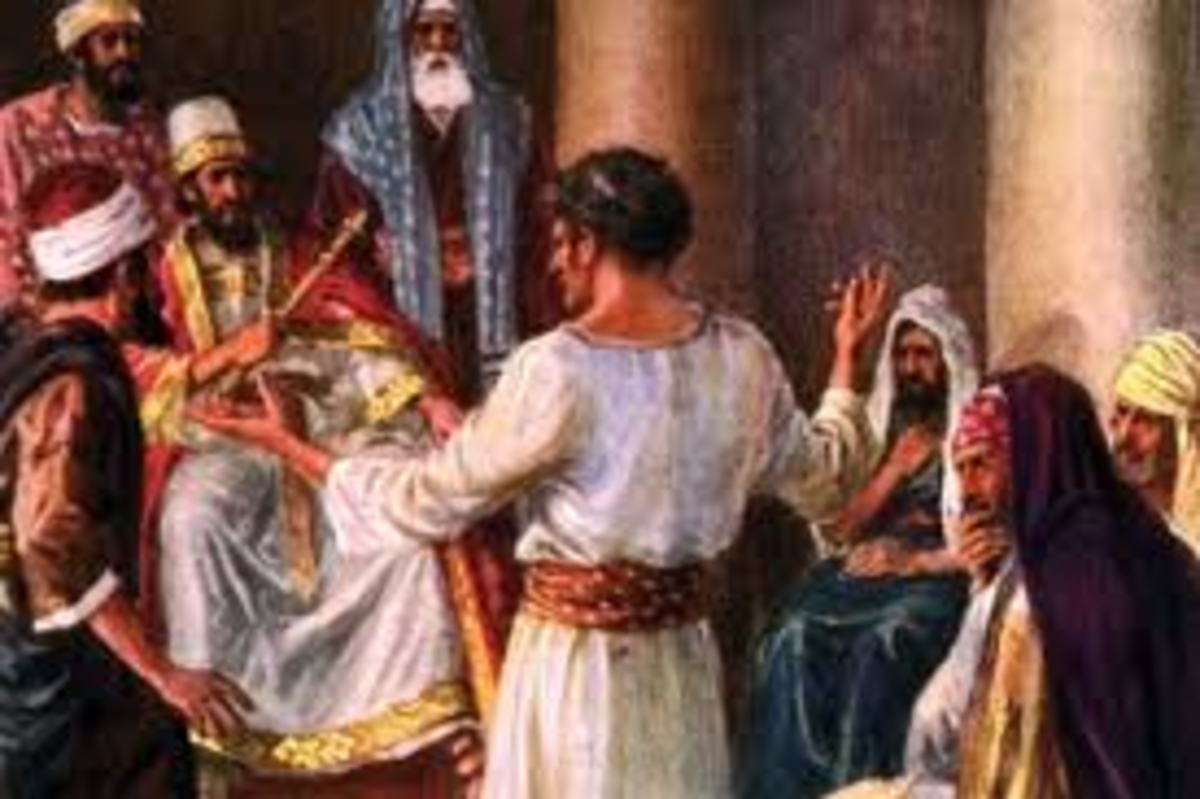Bible: What Does Ezekiel 20-21 Teach Us About Rebellion, and the Future Restoration of Israel?
Rebellion and Idolatry
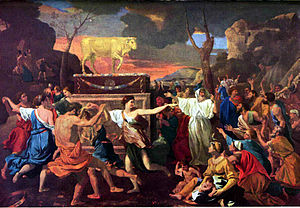
Yahweh: The Merciful God
view quiz statisticsRemembering Past Rebellions
Ezekiel 20
Again, Ezekiel's recording of another specific date may signal a new section in his prophecy (v. 1).
This revelation occurs eleven months and five days later than the last one (cf. 1:2; 8:1).
The circumstances are similar in that the elders of Israel once more come to the prophet to inquire of the LORD (v. 1; cf. 8:1 and see 14:1ff for details of a previous time they tried this ploy).
The present attempt does not succeed any better than did the earlier one (vv. 2-3).
Yahweh commands Ezekiel to declare to them "the abominations of their fathers" (v. 4).
Commencing with His oath to ancient Israel in which He promised to deliver them from Egypt and take them to Canaan, and progressing to His command for them to rid themselves of their abominable idols,
God recalls how "they rebelled against Me and would not obey Me."
He remembers also how He had refrained from pouring out His fury upon them, that His name "should not be profaned before the Gentiles . . .” (vv. 5-9).
Instead of destroying them, however, He brought them into the desert and provided them with instruction for proper living (vv. 11-12).
Yet Israel again disobeyed, this time in three specific ways: By
(1) Ignoring His statutes,
(2) Despising His judgments, and
(3) Defiling the Sabbath (v. 13)
[With the next sentence God begins the repetitions to prove to the present generation how their fathers constantly rebelled against Him].
Yahweh again refrained from total judgment "for His name's sake" to avoid being "profaned before the Gentiles (vv. 14, 17); nevertheless, He did not allow them to enter Canaan because of their sin (vv. 15-16).
Despite God's personal, gracious command to them not to follow in their fathers' ways, Israel's next generation does not obey His word any better (vv. 18-23).
[Note the repetition in form of various words and clauses: statutes, judgments, Sabbaths, pour out My fury, acted for My name's sake, should not be profaned, lifted hand in oath].
Israel's punishment on this occasion consists of dispersion among the Gentiles, because they had failed to follow God's judgments, statutes, and Sabbaths (vv. 23b-24).
In their scattering God allows them to adopt false doctrine (statutes, judgments) and practice unclean rituals (sacrifice of first-born) [vv. 25-26].
With this final example completed, He returns to the present situation and commands Ezekiel to tell the people how blasphemous their fathers' sacrifices were to Him (vv. 27-29).
Yahweh points His finger at the present generation, and accuses the people of the same kinds of abominations that their fathers committed (vv. 30-31a).
For this reason, He refuses to listen to the elders' request: "We want to be like the Gentiles" (vv. 31b-32).
Even with all of their sin, God does not leave them without hope.
The Location of the Judgment
view quiz statisticsJudgment of Israel in the Wilderness
The next section reveals His gracious plans for Israel's future: the fulfillment of His oath to give them the land permanently.
[Interpreters should not spiritualize this promise and apply it to the Church; the nation Israel will realize this hope].
The LORD speaks about His gathering them (notice the emphasis on the means by which He will gather them—a mighty hand, an outstretched arm, with fury poured out, vv. 33-34)—into the "wilderness of the peoples" where He will "plead My case with you" (vv. 35-36).
Yahweh will enter into judgment with the nation. Only those who pass the test will enter the land (the millennial kingdom) and be brought into the "bond of the covenant" (vv. 37-38).
With that warning He allows each Israelite to make his choice, but He does not want the current sacrificial behavior to continue in its hypocrisy (v. 39).
Those who will make it into the land in that day will He graciously accept; they will glorify God before the Gentiles with their sacrifices.
[Thus, the sacrificial system will continue in its worship capacity in the Messianic kingdom (vv. 40-41)].
Their salvation will convince them not only of their special relationship to their gracious LORD, but also of their unworthiness to receive His forgiveness and favor (vv. 42-44).
One final message in this chapter concerns a divinely started "fire" in the "forest of the South" that will cause great devastation (vv. 45-48).
After proclaiming this word, the prophet complains about the lack of understanding among His hearers (v. 49).
Jerusalem

The King of Babylon
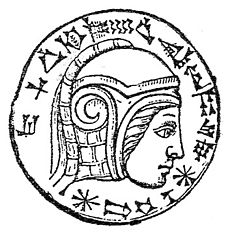
Great Slaughter
Ezekiel 21
Ezekiel continues to receive instructions to proclaim doom. At that time, God directs him to speak against Jerusalem, the holy places, and the land of Israel (vv. 1-2).
Yahweh plans to unsheathe His sword and destroy both the righteous and the wicked in Israel (vv. 3-5).
Ezekiel's sighing before them is a signal to them of how they will react once God's judgment falls upon them (vv. 6-7).
The second message emphasizes the LORD's terrible slaughter with His sharp, polished sword (vv. 8-11; cf. Heb. 4:12; Rev. 19:15).
Judgment will spare neither the scepter (the king) nor the princes (vv. 12-13); Yahweh calls it a testing of all the people.
A third time God tells Ezekiel to prophesy about the great slaughter that His sword will accomplish (vv. 14-17).
[Verses 9-17 are poetic, dramatic, fear inspiring].
Starting with verse 18, the LORD reveals the identity of His instrument: the king of Babylon. He directs the prophet to make a sign for this king to take and put at the fork of two roads (v. 19).
If the king's divination points to the right, he will invade Jerusalem (vv. 20-22).
[The pronouns of verse 23 make interpretation difficult, but the "he" represents the king of Babylon who will remember Israel's iniquity and take the city].
Transgressions, sins, and iniquity appear openly and lead Israel to disaster, and its profane prince to dethroning and de-crowning (vv. 24-27a).
However, Yahweh alludes to a day when the Messiah-King will wear the crown (v. 27b).
The last section contains a message of doom to the Ammonites; God's sword will consume them, too (vv. 28-32).
Ammonite prophets and sorcerers will inform the army that it will conquer ("bring you on the necks of the wicked, the slain") the prince of Israel (he "whose day has come, whose iniquity shall end," v. 25).
The LORD announces that He will certainly judge the Ammonites in their own land by the "hands of brutal men who are skillful to destroy" (vv. 30-32).
© 2014 glynch1

